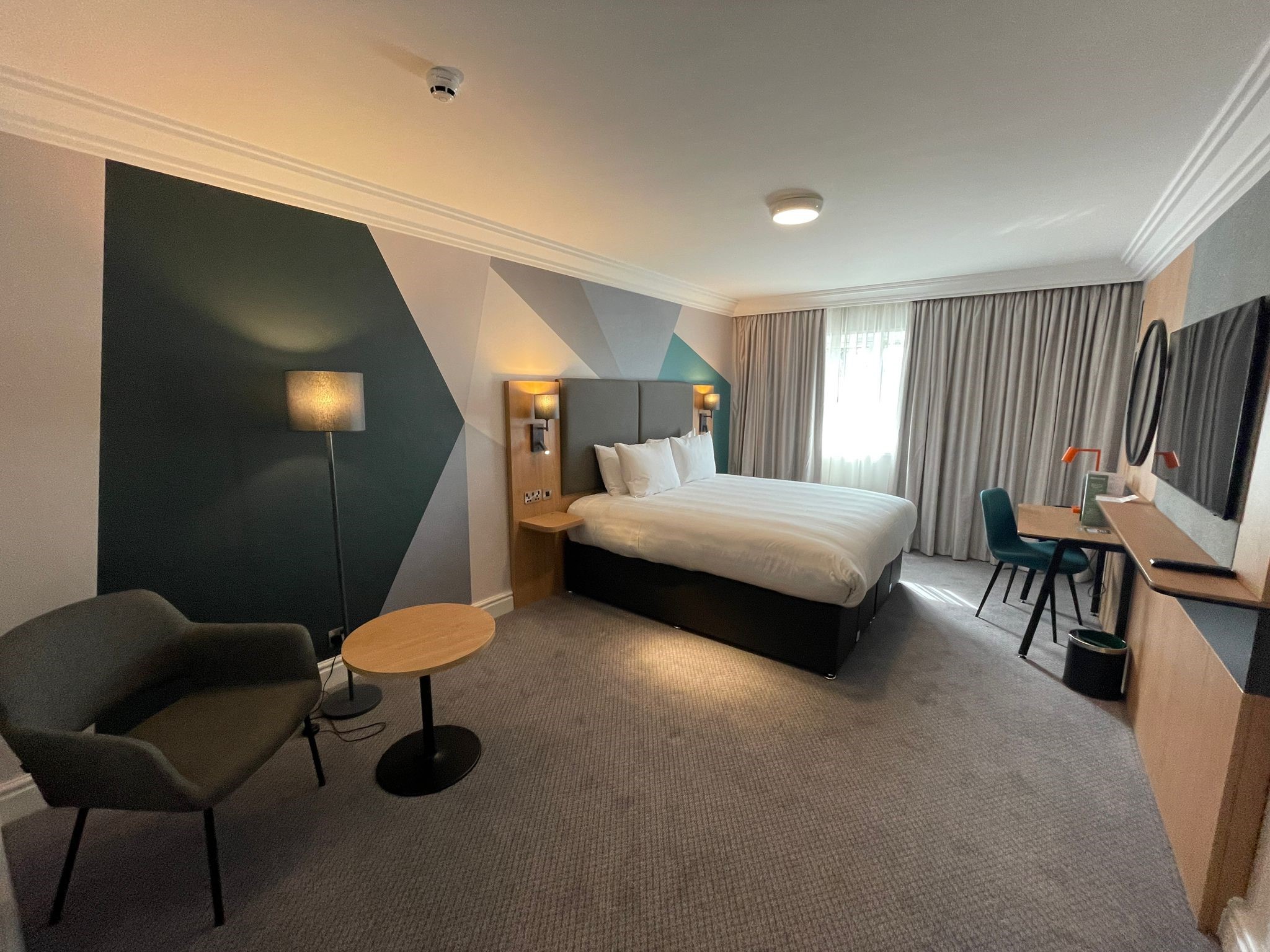Home > Updates and Insights > Top tips to renovating in a ‘live’ environment
How to successfully manage live hotel refurbishments
We recently completed a 7-month project refurbishing the 139 bedrooms at the Holiday Inn, Aylesbury. The programme was delivered across 4 phases in a live, working environment.
Refurbishments are an essential part of a hotel’s lifecycle. However, as many establishments are remaining open to minimise loss of revenue, refurbishments can cause operational and customer complications if not managed correctly.
Bringing the multiple pieces of the project together, from ordering materials to installing lighting and plumbing is like directing an orchestra – each trade must happen at the right time to ensure the harmony of the project is maintained. That said, it’s imperative that contingencies are planned for from the outset. As with all refurbishments, unforeseen issues may arise, which can prove more problematic when trying to adhere to a strict programme. If there are disruptions, it’s about knowing how and when to manage expectations, keeping things flowing as smoothly and peacefully as possible and above all communication with the client at all times is key!
As a company, we are well-versed in working within live trading environments, and these are some of our top tips to ensuring these projects are well run:
- A refurbishment programme must start with a detailed programme, which should be outlined to the hotel management team so they know when each element of the project will take place, and how the entire process will remain “invisible” to guests and staff.
- Understanding ‘off-peak’ times for the hotel is vital. For example, ideally, the overall refurbishment is best performed during less-busy seasons and work schedules must be planned to minimise noise and disruption during the early morning or late at night.
- Ensuring that the trade teams carrying out any work, from plumbers to contractors and even delivery teams are respectful of guests and the running of the hotel at all times goes without saying.
- Good quality hoarding boards to separate areas while work is being carried out should be erected.
- Any waste generated by the refurbishment team must be removed quickly and efficiently.
Finally, consideration needs to be given to safety throughout the entire project, ensuring that the Health and Safety plan is adhered to and all safety procedures are followed.
CIC has successfully completed hotel refurbishments for big brands such as Dalata, Holiday Inn, Novotel and Crown Plaza.
